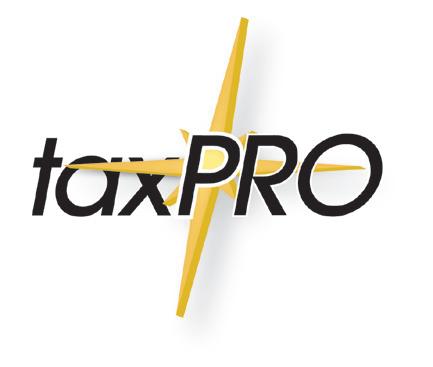
9 minute read
From the Director’s Desk
County Lines
County Lines [(ISSN 2576-1137 (print) and ISSN 2576-1145 (online)] is the official publication of the Association of Arkansas Counties. It is published quarterly. For advertising inquiries, subscriptions or other information, please contact Christy L. Smith at 501.372.7550.
Executive Director/Publisher Chris Villines Communications Director/ Managing Editor Christy L. Smith Communications Coordinator/ Editor Holland Doran
AAC Executive Board:
Debbie Wise – President
Brandon Ellison – Vice President
Rhonda Cole – Secretary-Treasurer Tommy Young Terri Harrison Debra Buckner Sandra Cawyer Kevin Cleghorn Terry McNatt Debbie Cross Brenda DeShields Ellen Foote Jimmy Hart Gerone Hobbs Marty Boyd John Montgomery Heather Stevens David Thompson
National Association of Counties (NACo) Board Affiliations Debbie Wise: NACo board member. She is the
Randolph County Circuit Clerk and president of the AAC Board of Directors. Brandon Ellison: NACo board member. He is the Polk County Judge and vice-president of the AAC Board of Directors. Ted Harden: Finance & Intergovernmental Affairs Steering Committee. He serves on the
Jefferson County Quorum Court. David Hudson: Chair of NACo’s Justice and
Public Safety Steering Committee. He is the
Sebastian County Judge and member of the
Rural Action Caucus Steering Committee. Barry Hyde: Justice and Public Safety Steering
Committee. He is the Pulaski County Judge. Gerone Hobbs: Membership Committee. He is the Pulaski County Coroner. Kade Holliday: Arts and Culture Committee and
International Economic Development Task
Force. He is the Craighead County Clerk. Paul Ellliot: Justice and Public Safety Steering
Committee, vice-chair of law enforcement subcommittee. He serves on the Pulaski
County Quorum Court. Ellen Foote: Community, Economic & Workforce Development Steering Committee. She is the Crittenden County Tax Collector. Tawanna Brown: Telecommunications & Technology Steering Committe. She is the Crittenden
County Chief Computer Operator.
AAC DIRECTOR’S DESK The state of state retirement
Employment in county government can be an incredibly rewarding career. Opportunities to help on a local level abound, and the satisfaction of being a public servant can be fulfilling. Jobs are usually stable, and the potential for many years of steady work (save being unelected) exist in a world that doesn’t change too much.
But county government is not usually financially rewarding. Fiscal rewards come to those in the civilian world more often than they do to those in government. Christmas bonuses are unheard of, and raises don’t move the salary needle very often.
This systemic shortfall was acknowledged years ago by our state. In order to somewhat equalize the playing field between public and private sector jobs, our state created the Arkansas Public Employee Retirement System (APERs). This defined benefit plan sought to reward long-standing career employees with a benefit at the end of their careers. It has helped to attract and retain employees since its inception.
Defined benefit plans base a post-career annuity based on a formula of salary and years worked. These systems incur some risk because the annuity doesn’t change regardless of the market value of investments. Most government pension plans remain defined benefit plans like ours. In addition to government pensions, the world’s largest defined benefit plan is something we all have access to: Social Security.
Alternatively, defined contribution plans pay out only what is put in, plus or minus interest gained or lost, over time. Defined contribution plans incur no risk to the employer, instead shifting all risk to the employee/investor. 401(k) plans (or the 457(b) (3) — the government equivalent) are the most common defined contribution plans.
APERs has been under incredible scrutiny over the last couple of years, and several bills filed in the 2019 session could have made significant changes in how APERs functions. Ideas such as raising the contribution rate, decreasing the multiplier used for the formulaic calculation, lowering the final average salary, and lowering the cost of living increase for retirees were all met with immediate opposition from state, county and city employees.
While changes may come in the future, I would like to thank state Sen. Bill Sample and state Rep. Les Warren for their leadership as co-chairs of the Legislative Joint Retirement Committee. They, along with many committee members, believed that a measured approach to change, along with APERs member input, was necessary before any major modifications were made. As a result, this committee met 12 times around the state over the last four months.
Much has been learned in this round-robin exercise. We’ve learned that APERs is around 79 percent funded. This means if the system (1) no longer gained new members; (2) hit its target investment rate; and (3) paid out all members already in the system who retire into the future, the amount of money would fall short of that amount needed to fulfill retirement obligations. While not funded in full at 100 percent, this 79 percent level still places APERs roughly in the top third of retirement systems similar to ours in the country.
Philosophies of how much a system like this needs to be funded run along a spectrum, and some believe the only healthy system is one that is 100 percent funded, while others are comfortable at a number less than our current 79 percent — after all, the scenario of nobody new coming into the system is not plausible.
Chris Villines AAC Executive Director >>>
There is no right answer. Opinions rule the day, and your opinion largely depends on your personal comfort level and the angle from which you are viewing retirement.
There are a few things I have considered as we’ve gone through this process. First of all, our system is trending the right direction and has become ever so slightly better funded over the last couple of years. Also, for the future of government and this benefit, it is important that it be very solvent as we move forward — so we should all celebrate as this number increases.
I also believe it is foolish for anyone to ever believe there is no risk with a system such as APERs regardless of its funding percentage. Even if funded at 100 percent a mass exodus of employees and economic downturn could be dangerous — and everyone, even retirees, could be in danger of losing benefits. BUT the higher the funding percentage, the better our system is able to absorb situations such as this.
I strongly believe that those who have already retired based on a 3 percent COLA set in statute would be wronged if we choose to change that COLA for them. Many have made decisions based on this COLA. To change it once retirement occurs is unconscionable.
I have learned that some of the other large systems in our state have been making changes in the past few years to draw them closer to a fully funded position. For instance, the Arkansas Teacher Retirement System (ATRS) has been slowly increasing the contribution rate for its members and will soon reach a 7 percent contribution rate, while APERs employees are at 5 percent. This increase has taken their funding level above 80 percent, and it is trending upward.
And finally, while change may come, I have learned to think of a retirement system as a large cargo ship on a longterm trajectory — immediate changes can be small but have major impact years down the road. For instance, delaying any legislative changes over a two-year period during which the committee can properly analyze things will likely have very minimal long-term impact. Avoiding overreaction and quick fixes is the right way to approach systems such as APERs.
Thank you to the many who have attended the 12 legislative committee meetings. The committee is analyzing all of the input provided, and they hope to provide recommendations for any changes in a similar format by taking them to you again across the state … before they become bills in the 2021 legislative session. Our opportunity to stay involved in this process is before us, and I encourage all of you to keep participating.
The AAC has put a tab on our website (www.arcounties. org) for retirement-related issues. Future meeting information and any other developments can be found there, as well as our social media activity. So please keep watching and stay involved — and also please continue to contact county retirees and keep them abreast of what is happening.
Arkansas’ Arkansas’ Premier Premier Pavement Pavement Maintenance Maintenance & & Safety Safety Contractor Contractor
● Pavement● Pavement Maintenance Maintenance Services Services ● Municipal● Municipal Road Road Striping Striping ● Airport● Airport Pavement Pavement Maintenance Maintenance ● Guardrail● Guardrail Maintenance Maintenance ● Traffic● Traffic Control Control Services Services
Call Call (479)262‐6160(479)262‐6160
www.custompavement.com www.custompavement.com

What Our Clients Are Saying:
Larry Davis, Saline County Treasurer: “….We never have any problems with the software but when we have questions, they are happy to assist. They always return our calls, are open to suggestions, and they keep up with any new laws that pertain to us. The staff is great……. I highly recommend Financial Intelligence.”
Sherry Bell, Columbia County Clerk: “….This software for payroll, accounts payable and general ledger is designed specifically to meet the requirements of Arkansas County Government and Arkansas Legislative Audit….. The software offers detailed information on all levels to assist not just my department, County Clerk, but other elected officials on budgetary inquiries….”
Betty Boling, Montgomery County Treasurer: “….In addition to the monetary savings for our county, the electronic storage capabilities allow easy and efficient retrieval of records and documents. This is a comfortable feeling to have when you are responsible for keeping records and documents in case of a disaster. For me FI is the best way to go for data security, cost savings, time savings, customer service and support. I highly recommend Financial Intelligence and their very friendly staff to anyone whose goal is to operate their county office more efficiently….”
Susan Ashmore, Garland County Comptroller: “Since the establishment of the Finance Department in Garland County, I have had the opportunity to work closely with the Financial Intelligence staff on many occasions. They have always exhibited excellent support and service. We are grateful for this and also for the open line of communication we have with them. FI makes sure we are equipped with the latest updates, and this keeps Garland County in compliance with all State and Federal mandates.”
Jenay Mize, Baxter County Treasurer: “……They are continually improving their product! The functionality of this software is very good! I love the budgeting module and how every entry that is made, is date and time stamped! The prompt response time is unheard of in other software systems.”
Margaret Darter, Faulkner County Clerk: “….The personnel at FI have gone above and beyond to make my job as easy as a click of the mouse! When we have the occasional issue, we contact FI support and within minutes our problems are fixed. On the rare occasion that it may take a few days, FI personnel always keeps me posted of the situation and the expected timeline of when the problem will be fixed…. I cannot imagine running a County Clerk’s office without FI.”
Tim Stockdale, Garland County Treasurer: “……..Whenever we have a question, their technician response time is so fast that it seems like they are only in the next room…….We are 100% satisfied with their state of the art software and the expertise and professionalism of their staff……”
For complete testimonials visit us at financial-intel.com
We Can Serve All of Your Financial Needs
PAYROLL WITH LEAVE AND HR FUNCTIONS
ACCOUNTS PAYABLE
TREASURER
GENERAL LEDGER
BUDGETING
FIXED ASSETS
PURCHASE ORDERS
FULLY INTEGRATED SCANNING FOR EACH MODULE
EMPLOYEE PORTAL












